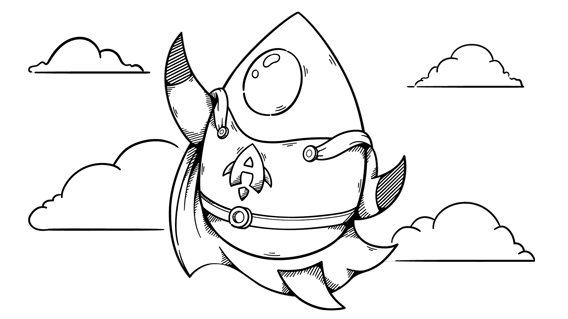As we celebrate Pride Month, I feel it’s important to reflect on the immense contributions of LGBTQ individuals to technology. These pioneers have not only advanced technological innovation but also championed diversity, paving the way for a more inclusive industry. I am proud to belong to an industry that has become so inclusive — but it has not always been that way.
One of the most renowned figures in computer science — and likely the first that comes to your mind when you think about not just LGBTQ contributions but any contributions to the field — is Alan Turing. Turing is often hailed as the father of computer science and artificial intelligence. His work during World War II was pivotal; his development of the Bombe machine significantly contributed to deciphering the Enigma code, the touted “unbreakable” encryption used by the Nazi Party. This feat, without argument, shortened the war by years and saved countless lives. Turing’s later theoretical work laid the foundation for modern computing. His concept of the Turing machine introduced the idea of algorithms and computation, and the Turing Test is still a phrase used frequently around AI. Despite his monumental contributions, Turing faced extreme persecution as a gay man at the hands of the United Kingdom, leading to his tragic death by suicide in 1954. Turing would eventually be pardoned and recognized as the hero he was in 2014 by Queen Elizabeth II. Fighting for your country while being persecuted by that same country is one of the strongest marks of true character that I can fathom.
Edith Windsor was another pioneering figure whose contributions spanned both technology and civil rights. As a senior systems programmer at IBM, Windsor worked on mainframe computers, making significant technical advancements during her 16-year tenure. However, Windsor’s impact extended far beyond her technical achievements. After the failure of federal law to recognize her same-sex marriage caused her to owe hundreds of thousands of dollars in estate taxes, she filed suit, and her landmark Supreme Court case, United States v. Windsor, was instrumental in striking down the Defense of Marriage Act (DOMA) in 2013. This decision was a significant victory for marriage equality in the United States. Windsor’s life and work exemplify how individuals can drive change in multiple arenas, advocating for both technological progress and social justice.
In the realm of hardware and software design, Sophie Wilson stands out for her groundbreaking work. As a co-designer of the ARM architecture, Wilson played a crucial role in creating a technology that powers billions of devices today, including the smartphone that you might be reading this on. Her work at Acorn Computers and contributions to the development of the BBC Micro computer were also pivotal in the early days of personal computing. Sophie transitioned in 1994, well into her career, and her visibility as a trans woman in tech helped move the needle toward greater acceptance in the field.
Lynn Conway is another figure whose work has had a lasting impact on the technology industry. A computer scientist and electrical engineer, Conway revolutionized microchip design with her contributions to Very Large Scale Integration (VLSI). Her work enabled the mass production of microchips, a cornerstone of modern electronics. Like Wilson, Conway transitioned during her career — but in her case it was in the 1960s, a time when transgender individuals faced even greater societal challenges than they do today. Despite these obstacles, Conway’s achievements in technology and her advocacy for transgender rights have been inspirational, demonstrating the importance of embracing diversity in all its forms.
Jon “maddog” Hall has been a vocal advocate for open-source software, promoting the benefits of collaborative, community-driven development. Hall’s work with Linux International and his advocacy for free software have been instrumental in the widespread adoption of open-source technologies. After publicly coming out as gay — on the 100th anniversary of Alan Turing’s birth, in 2012 — Hall has also been a strong supporter of LGBTQ rights, showing that personal identity and professional expertise can go hand in hand to foster both technological and social progress.
Here at MartianCraft, our day-to-day life is shaped by the work of Apple’s Tim Cook. He has been transformative, continuing the legacy of Steve Jobs and growing Apple into the world’s largest company. As CEO, Cook has overseen the company’s expansion and innovation, maintaining its status as a leader in consumer technology. His decision to publicly come out as gay in 2014 was a historic moment, making him the first openly gay CEO of a Fortune 500 company. His openness has been a beacon of hope and a call for greater acceptance and inclusivity in the corporate sphere.
Martine Rothblatt’s career spans multiple fields, including satellite communications and biotechnology. In 2017, Forbes recognized her entrepreneurship by naming her one of the 100 Greatest Living Business Minds of the past century. As the founder of SiriusXM and United Therapeutics, Rothblatt has been at the cutting edge of innovation. Her work in developing life-saving medical technologies has also been groundbreaking. A transgender woman, Rothblatt is also an activist for transgender rights.
Megan Smith played a pivotal role in technology and innovation as the third Chief Technology Officer of the United States. Appointed by President Barack Obama, Smith’s tenure was marked by initiatives to promote diversity in tech and to drive technological advancements in government. Her work at Google and various startups showcased her ability to foster innovation while advocating for greater inclusion. As a gay woman, Smith demonstrates the importance of diverse perspectives in driving technological progress.
As we enter and celebrate Pride Month, it is important to remember and honor these pioneers and the many other LGBTQ people who have shaped technology from the earliest stages of tech through today’s hottest startups. These individuals and so many others have had a profound impact on technology and society and truly shaped the modern world, from the devices we use daily to advancements in computing and biotechnology.
While countries, societies, companies, and individuals have not always been accepting of the personal lives of others, it’s clear that the world is moving in the right direction, albeit sometimes slowly and painfully. It’s not an easy battle, and it isn’t won yet, but I find great solace in the progress made even over just the last few years.
This month, I hope you can take some time to acknowledge these individuals and all the others who have fought through persecution over their identities to make great contributions to our world, without whom the world would not be the same. As we look to the future, it is crucial to continue supporting and uplifting LGBTQ voices in technology, ensuring that the industry remains a place where everyone can thrive. By celebrating and learning from these trailblazers, we can create a more inclusive and innovative future for all.


